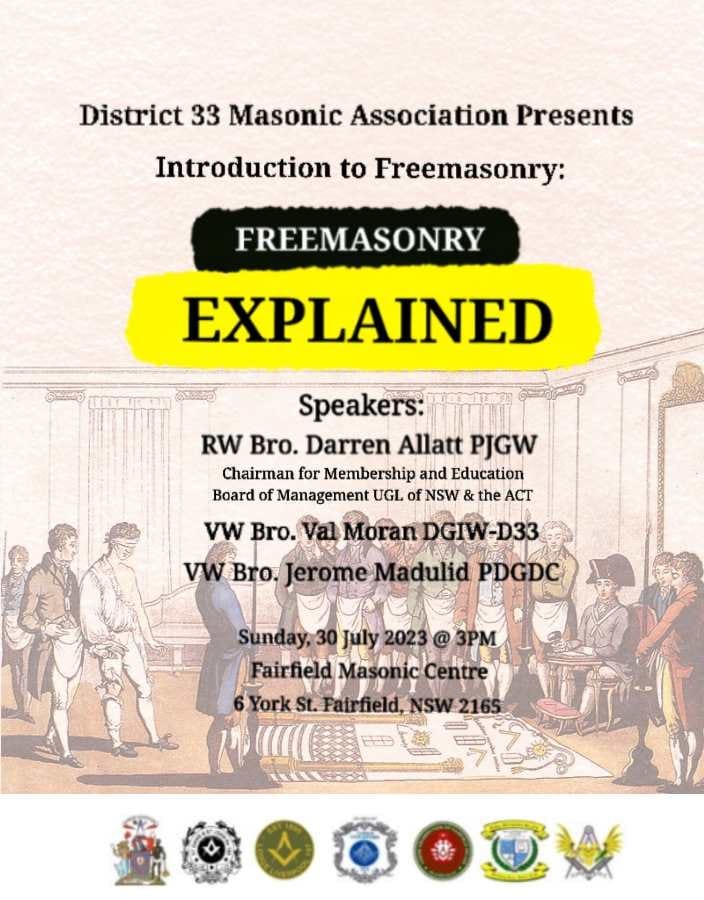Becoming a Student of Freemasonry
The Bedrock and Blueprint: Unraveling the Essence of Freemasonry to Reclaim the Art of Learning, Teaching and Mentoring.
My vision for Freemasonry is that every Mason is a student of Freemasonry.
To the observer, Freemasonry's age-old traditions might seem like intricate tapestries woven with complex symbols and allegorical teachings.
Yet, at the heart of our order, lies a simplicity that often goes unacknowledged.
The brilliance of Freemasonry is not in its complexity but in its ability to teach profound life lessons through simple moral principles, principles that serve as the foundation for personal growth.
Our Masonic journey begins with the understanding of the importance of these basic concepts, principles, and lessons.
They are the cornerstone upon which we, as Masons, construct our moral and ethical superstructures.
Unfortunately, it appears we may have drifted from this simplicity, and it's time we returned.
Navigating the labyrinth of Masonic teachings can be daunting.
It's not uncommon for us to veer towards overcomplication, feeling compelled to dissect every aspect of Masonic history, philosophy, and spirituality.
Or, we swing to the other extreme, oversimplifying our teachings to mere rote memorization of words and rituals.
We fail to understand that these words and rituals are merely the surface of an iceberg that plunges deep into our shared wisdom.
This deviation from simplicity is painful and detrimental.
It leads to a distorted understanding of our teachings and risks diminishing the essence of Freemasonry.
More critically, it creates challenges for member acquisition and retention. After all, the strength of our order relies on the growth and perseverance of our members.
So, why should we strive to reintroduce simplicity into our Masonic lessons?
Because it is through this simplicity that we can truly understand, embody, and apply the principles at the core of Freemasonry.
In doing so, we enrich our personal lives, strengthen our brotherhood, and ensure the continuity and relevancy of our order.
Now, the question becomes, how do we actually implement this?
Embrace Flexible Learning Structures:
The traditional Masonic structures of mentorship and study groups are vital, but their format can be flexible. They can range from one-on-one mentorship, small group discussions, to larger study groups within our lodges. They can occur casually in personal settings or formal gatherings.
To this extent, do not neglect the many opportunities that exist within our existing practices:Instead of inviting an Enquiry or Candidate just to the Festive Board, invite him to join everyone prior to tyling. Then have his Mentor or the Education Officer spend time with him while the Lodge is working. This is perfect to educate him on Freemasonry, dispel myths & misconceptions and answer any of his questions.
In a similar fashion, do the same for Apprentices & Fellowcrafts during higher degree work.
Promote Open Communication:
Masonic discussions shouldn't be confined to formal meetings. Engage in open dialogues, answering queries and sharing insights about Freemasonry throughout the membership process.
We can enrich this communication with structured content such as the forthcoming "Freemasonry Explained" program - (email me to go on the waitlist)
I am running Freemasonry Explained in “Information Session” format this weekend (details below) for Non-Masons, Enquirers, Candidates and Apprentices. Any Fellowcraft or Master Mason who wants to obtain the foundational knowledge is welcome to attend.
(For any Installed or Past Master who is interested, this is for those who are early in their Masonic journey and I request that you please prioritise other Family, Work or Masonic activities instead)Personalize the Learning Journey:
While we all journey through the same degrees, each Mason's path of understanding is unique.
For our Apprentices and Fellowcrafts, the focus should be on understanding the deep, multi-dimensional questions and answers that pave their way to advancement.
Email me for Study Methodology for Mentoring & Study GroupsDissect and Reassemble:
To truly grasp the lessons within our ceremonies, we must dissect each word, each verse, understanding their etymology and definition. Then, we reassemble them, using this deeper understanding to identify the moral principles they convey.Apply the Lessons:
We must then discern how these principles translate to everyday life, identifying when, where, and how we can apply them. We should reflect on the positive outcomes of embodying these principles and the consequences of disregarding them.
Simplicity doesn't equate to lack of depth. Instead, it enhances our understanding and application of our teachings.
Our commitment to this simplicity is not just a personal journey but a shared one that strengthens our Masonic brotherhood.
In conclusion, the beauty of Freemasonry resides in the simplicity of its moral teachings.





